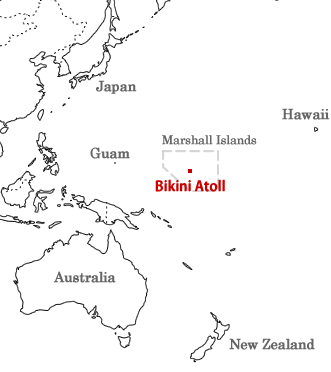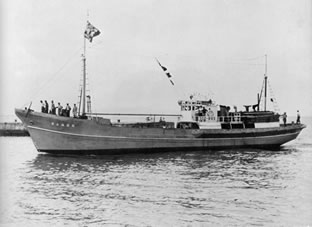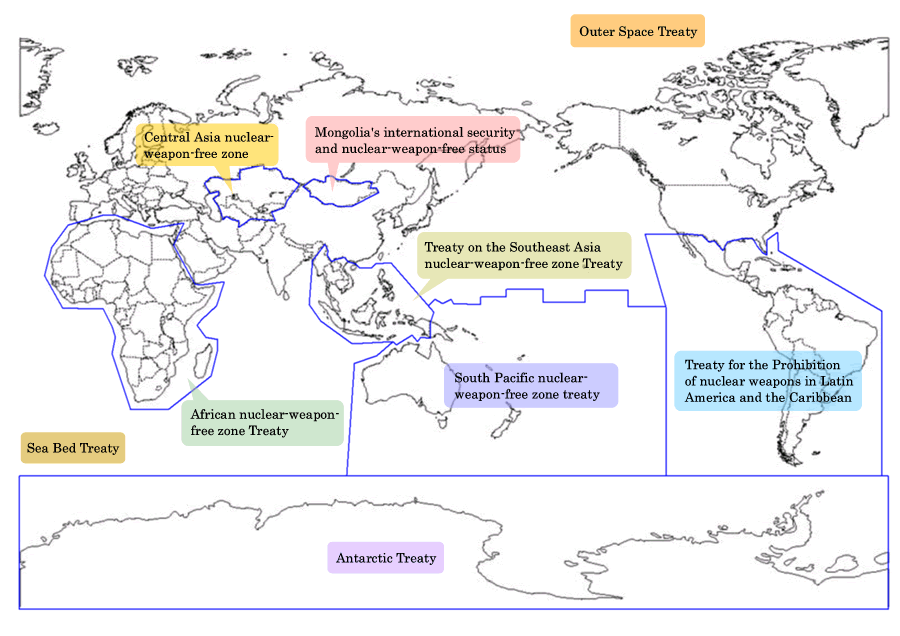Postwar activities relating to nuclear weapons
After the A-bombings of Hiroshima and Nagasaki, on August 15, 1945 Japan surrendered unconditionally, bringing an end to World War II. In the postwar period, however, the East-West standoff known as Cold War began between the East, i.e., the socialist camp, led by the Soviet Union (now Russia) and the West, i.e., the capitalist camp, led by the United States. Under such circumstances, to prevent nuclear attacks from other countries, the major countries continuously conducted nuclear development and testing, in the attempt to acquire many powerful nuclear weapons.
After the collapse of the Soviet Union, the Cold War ended. However, even now the nations that possess nuclear weapons are unwilling to give them up, as they wish to protect themselves by means of these weapons. Moreover, some countries have newly acquired nuclear weapons, and other countries are suspected of possessing such arms.



